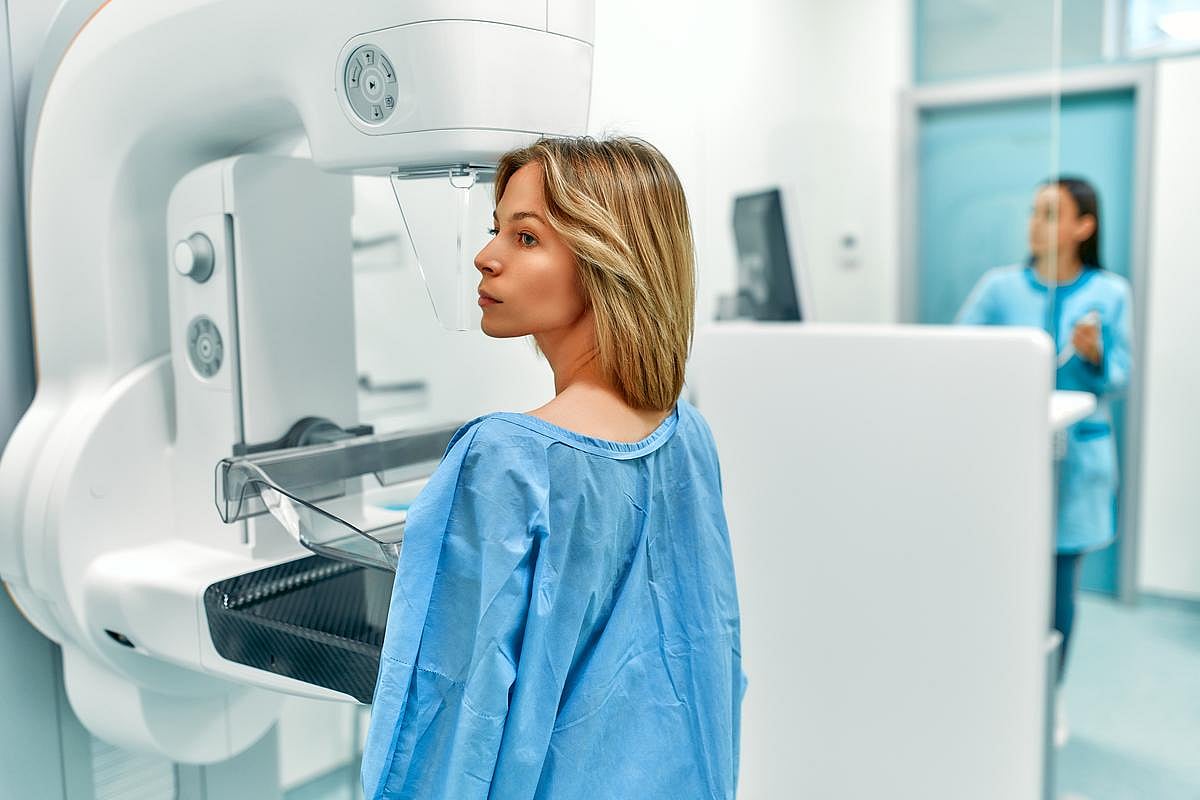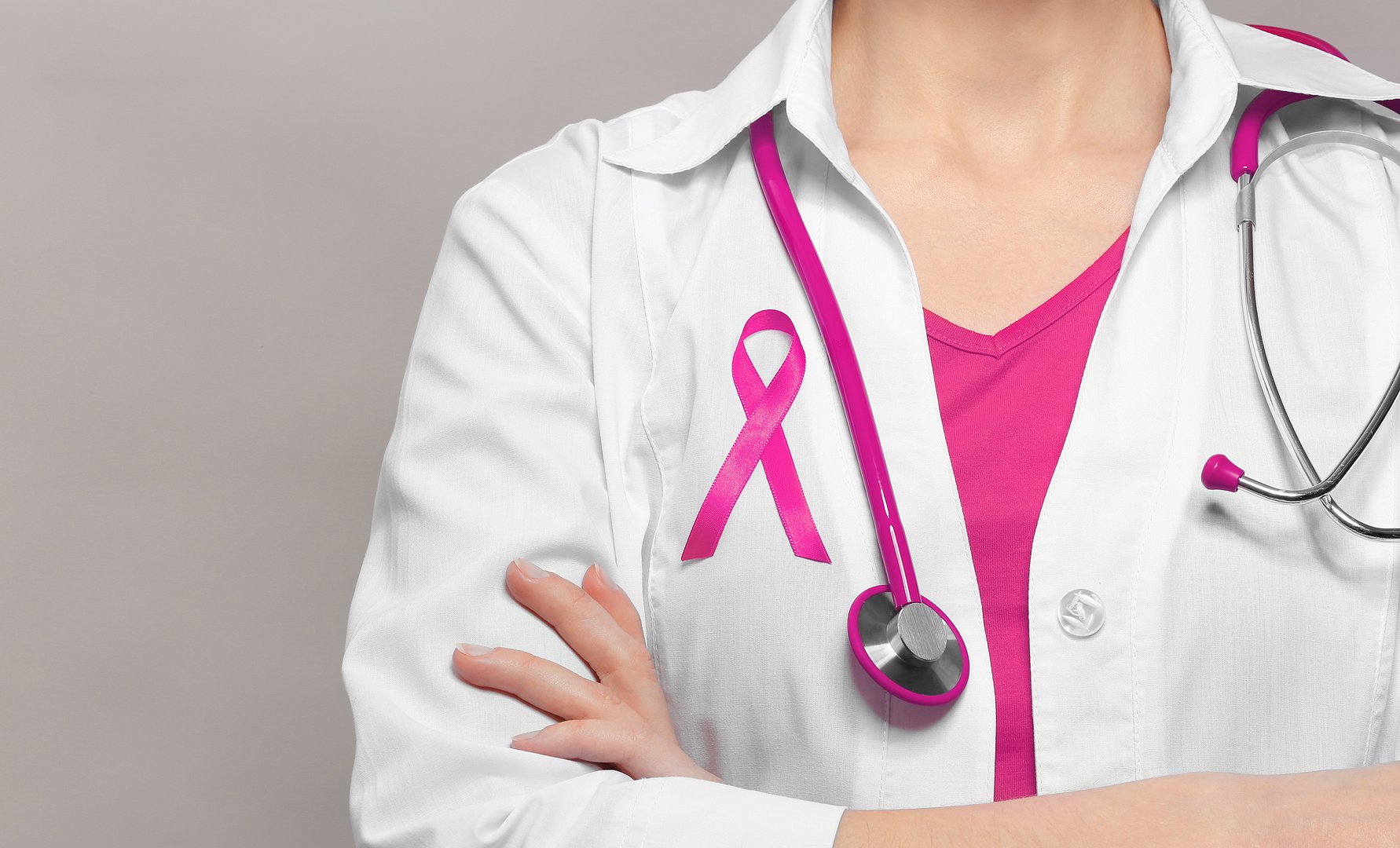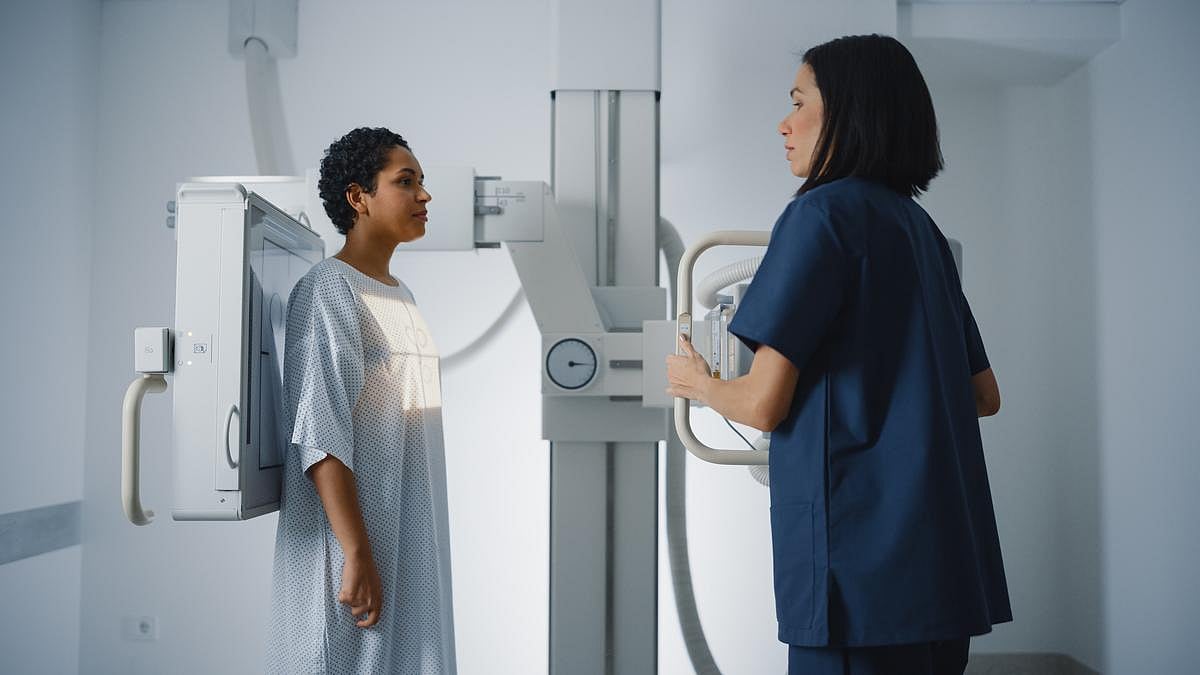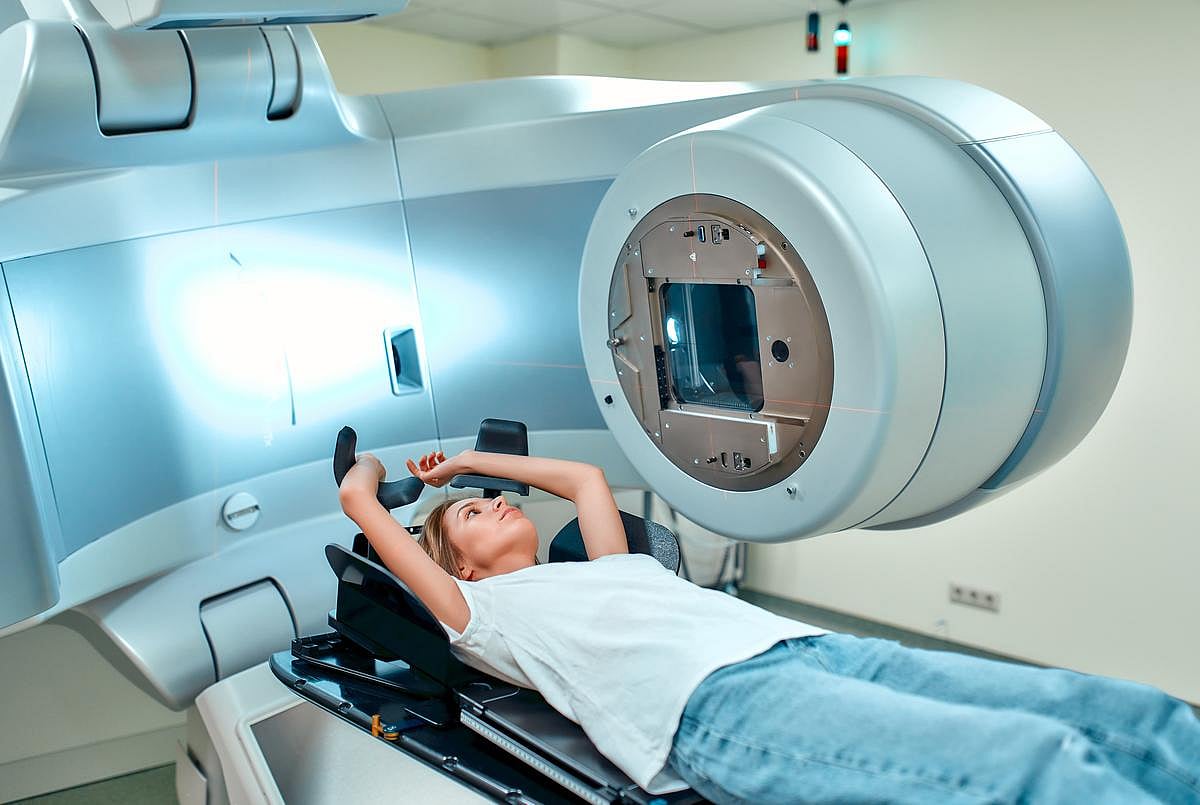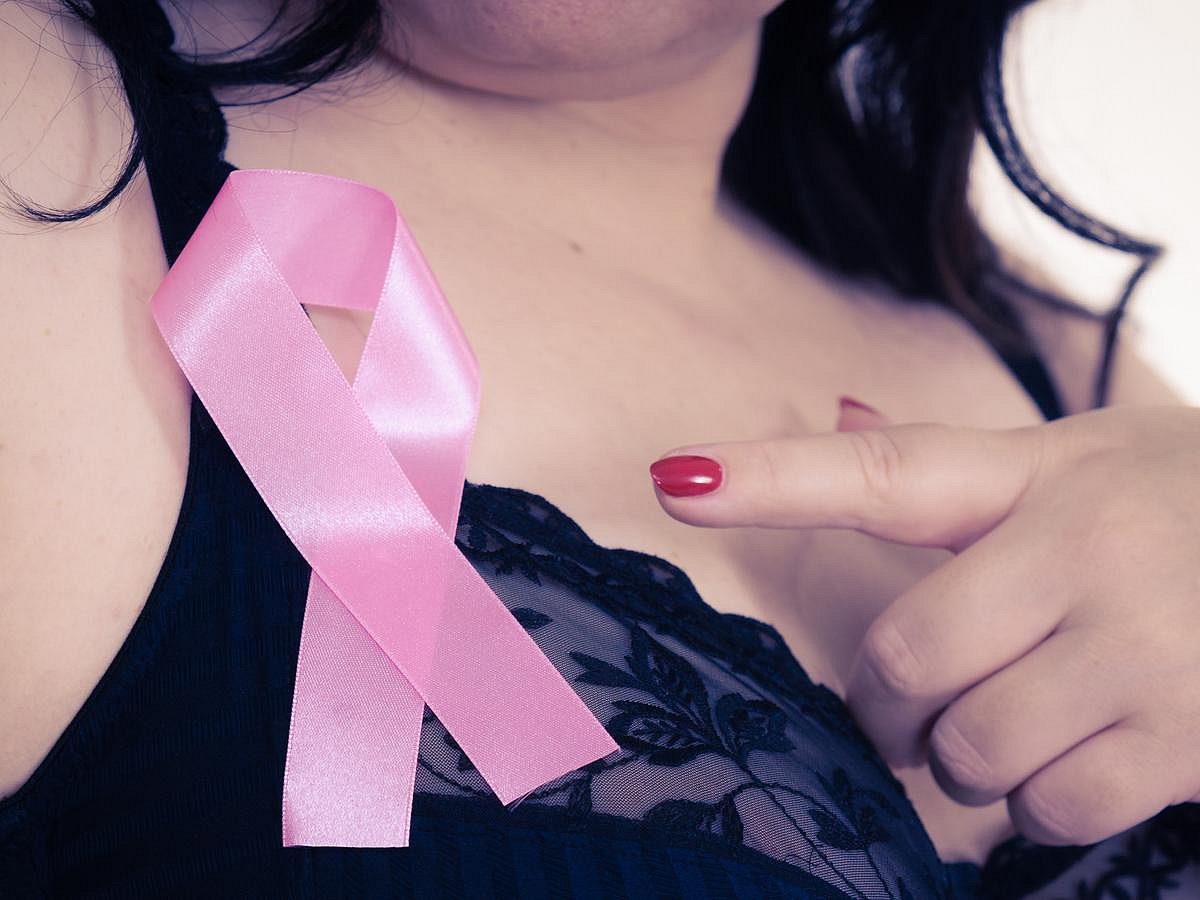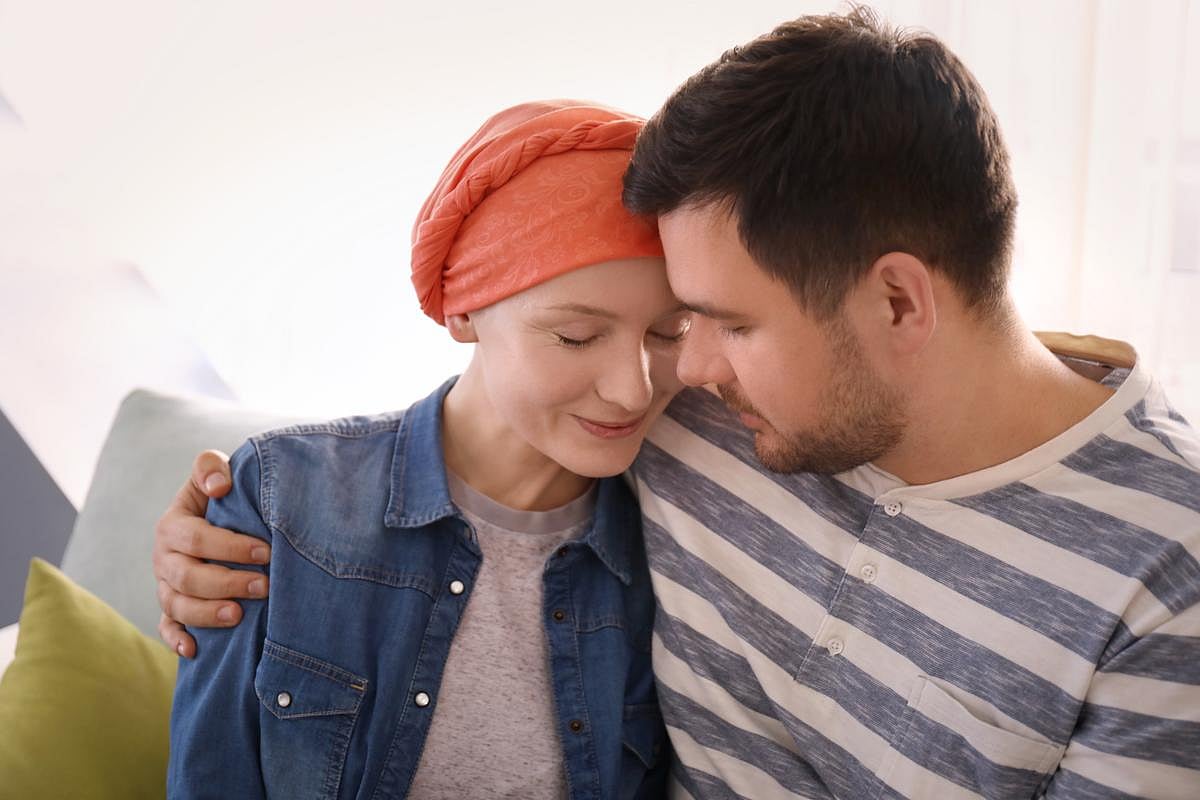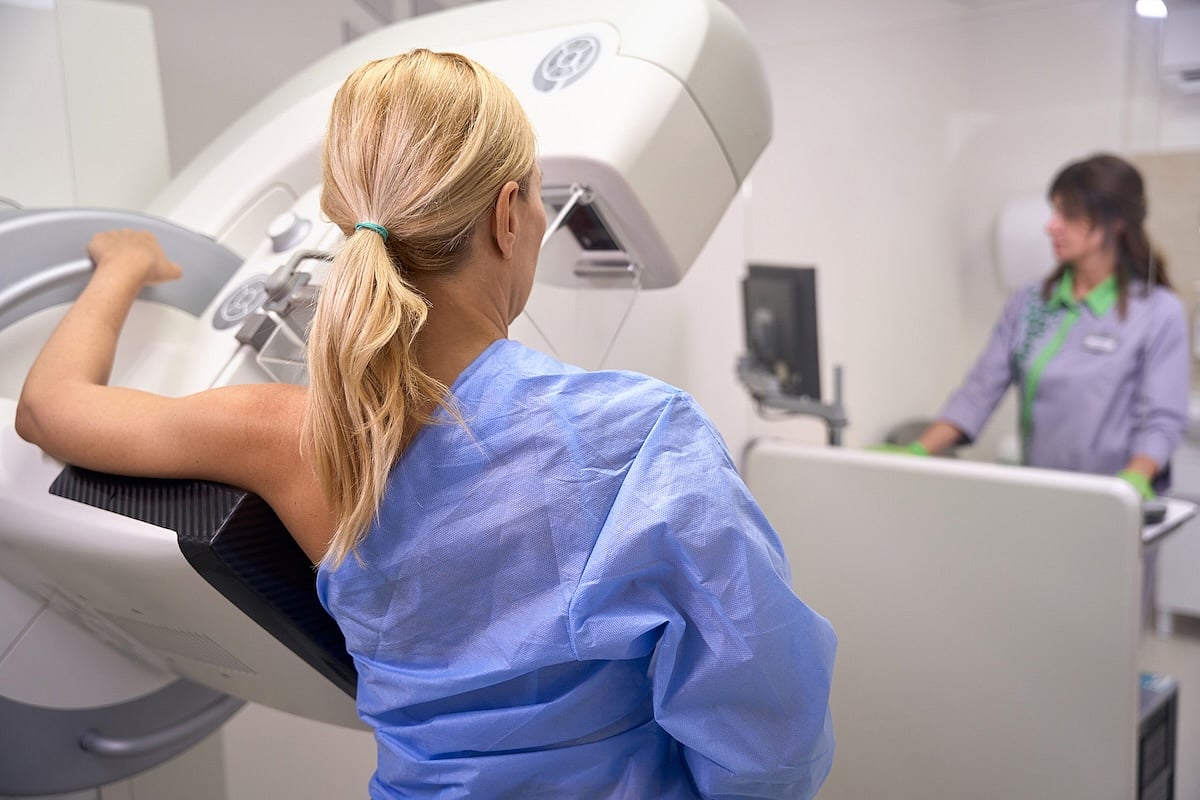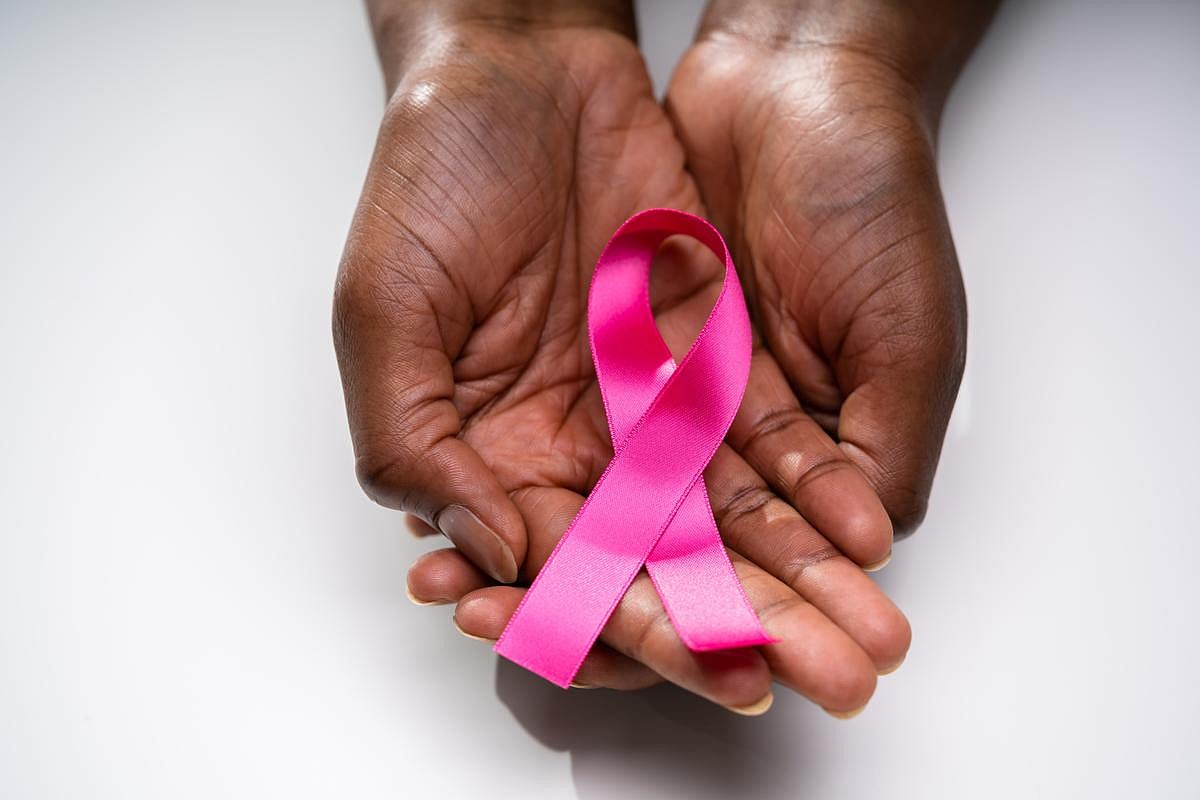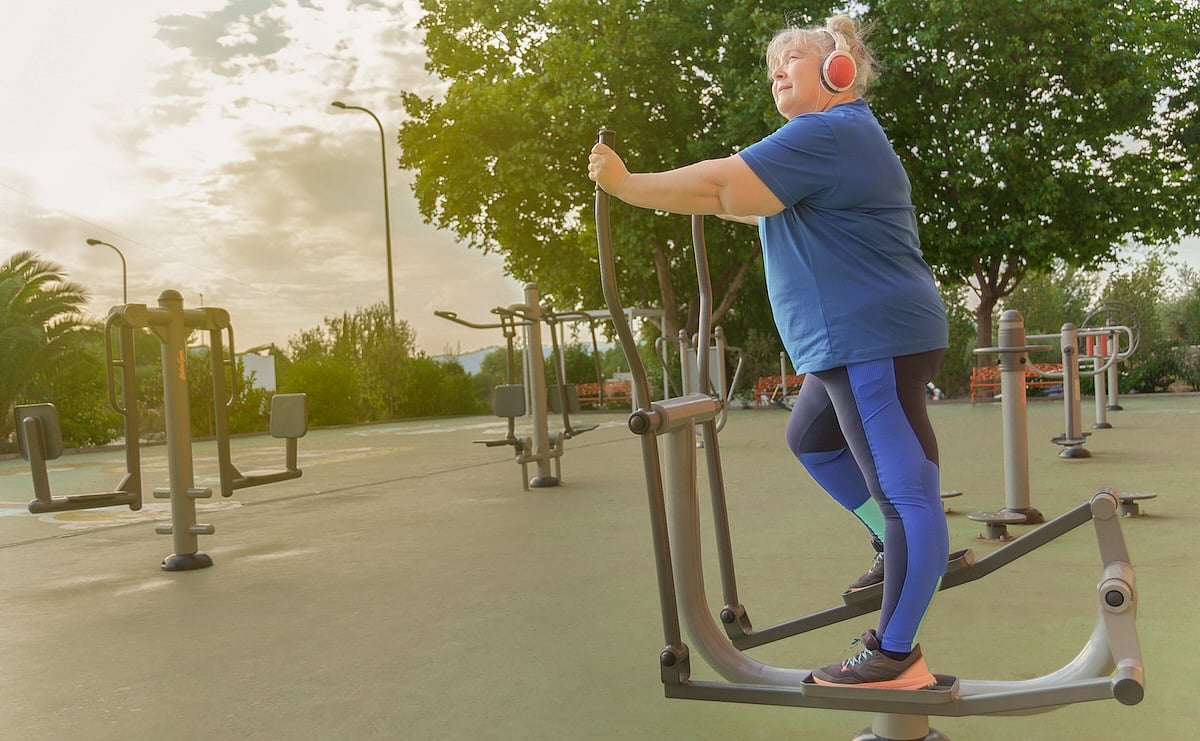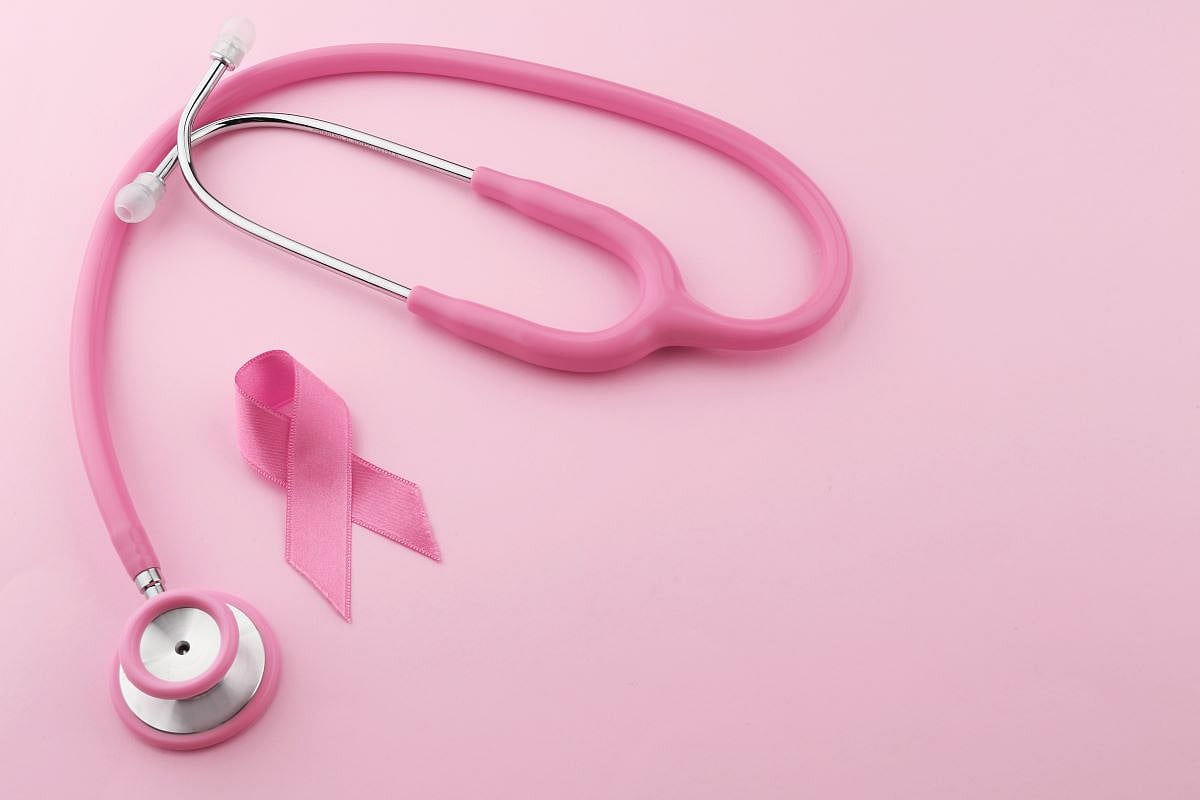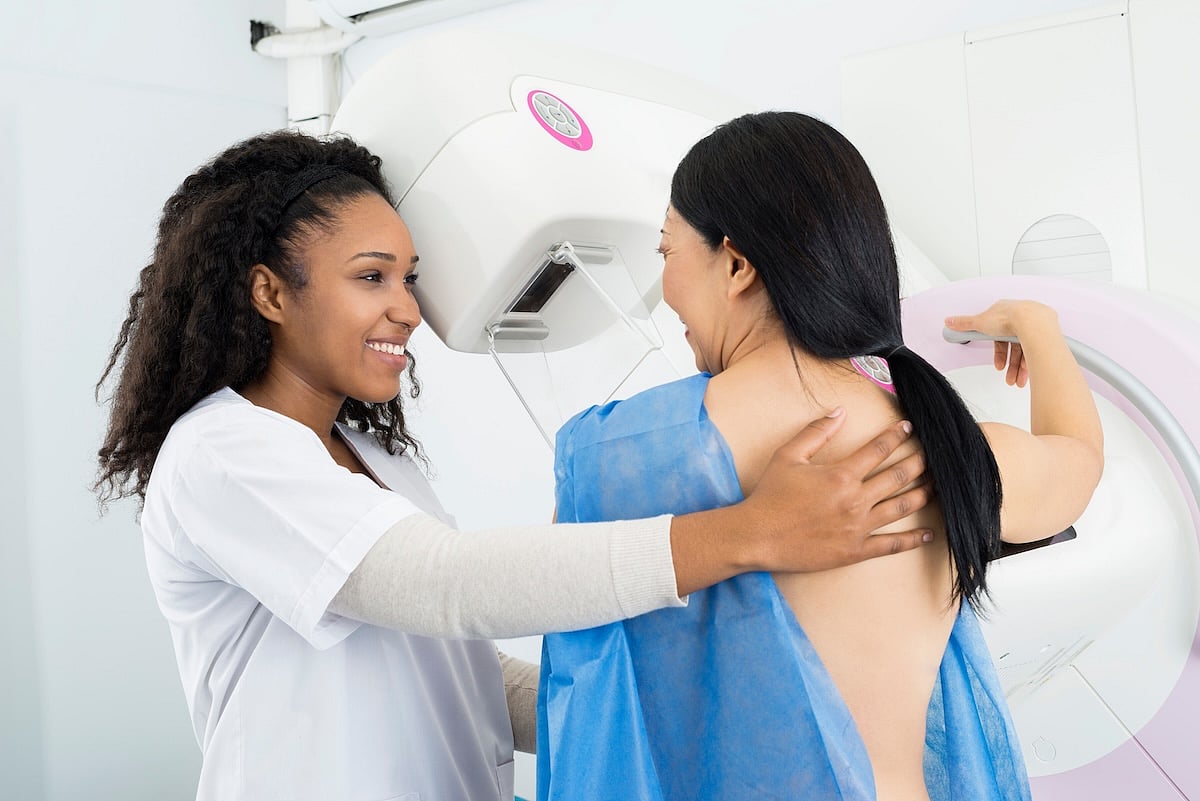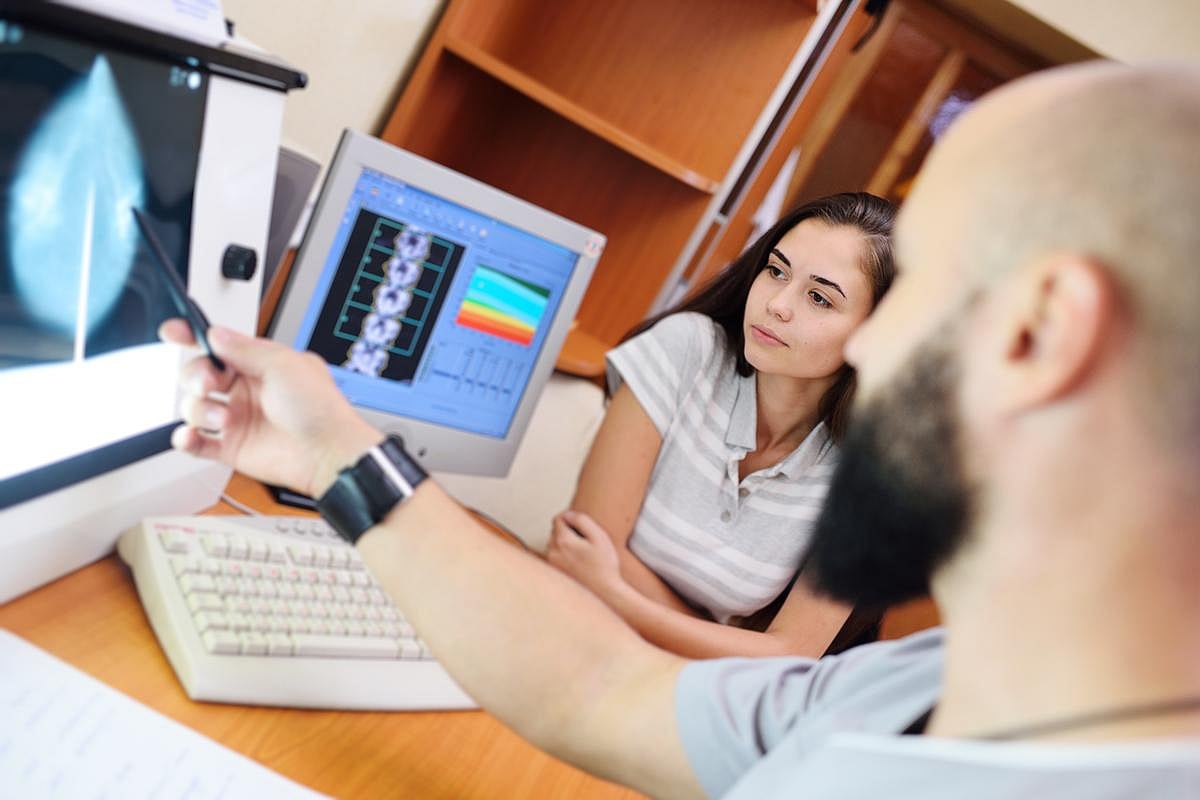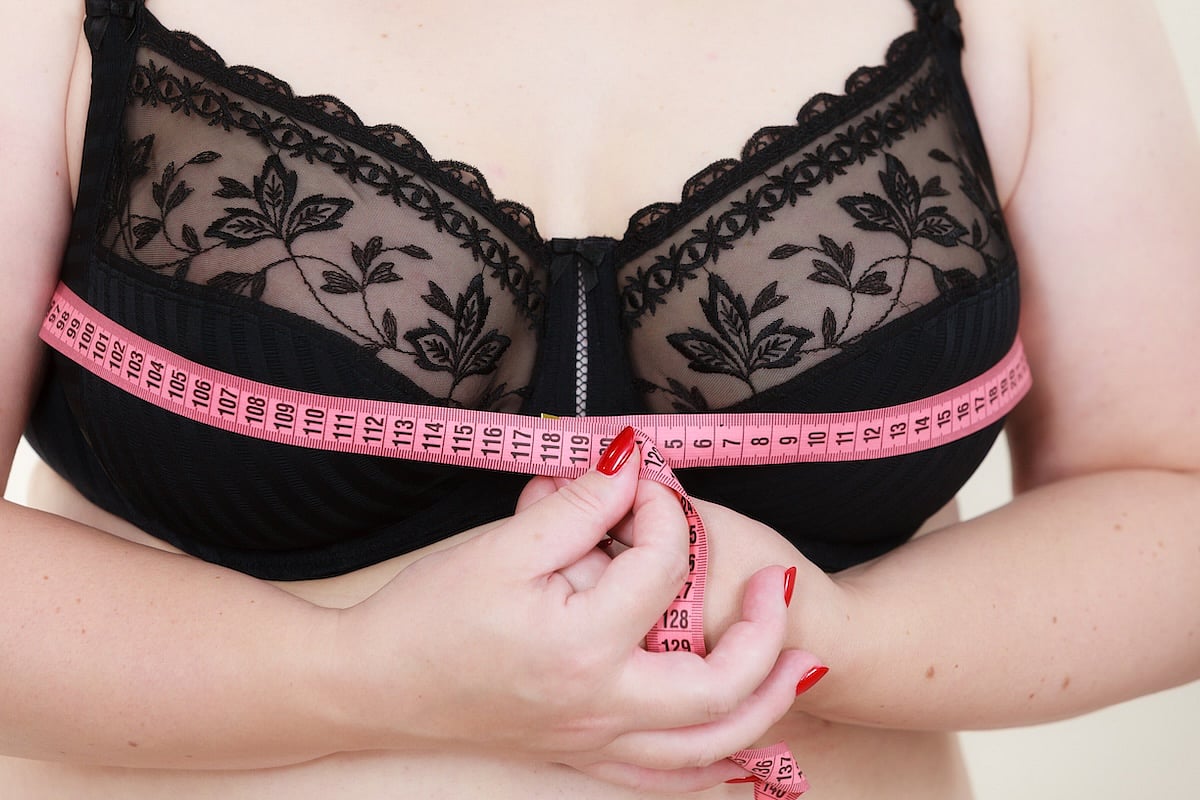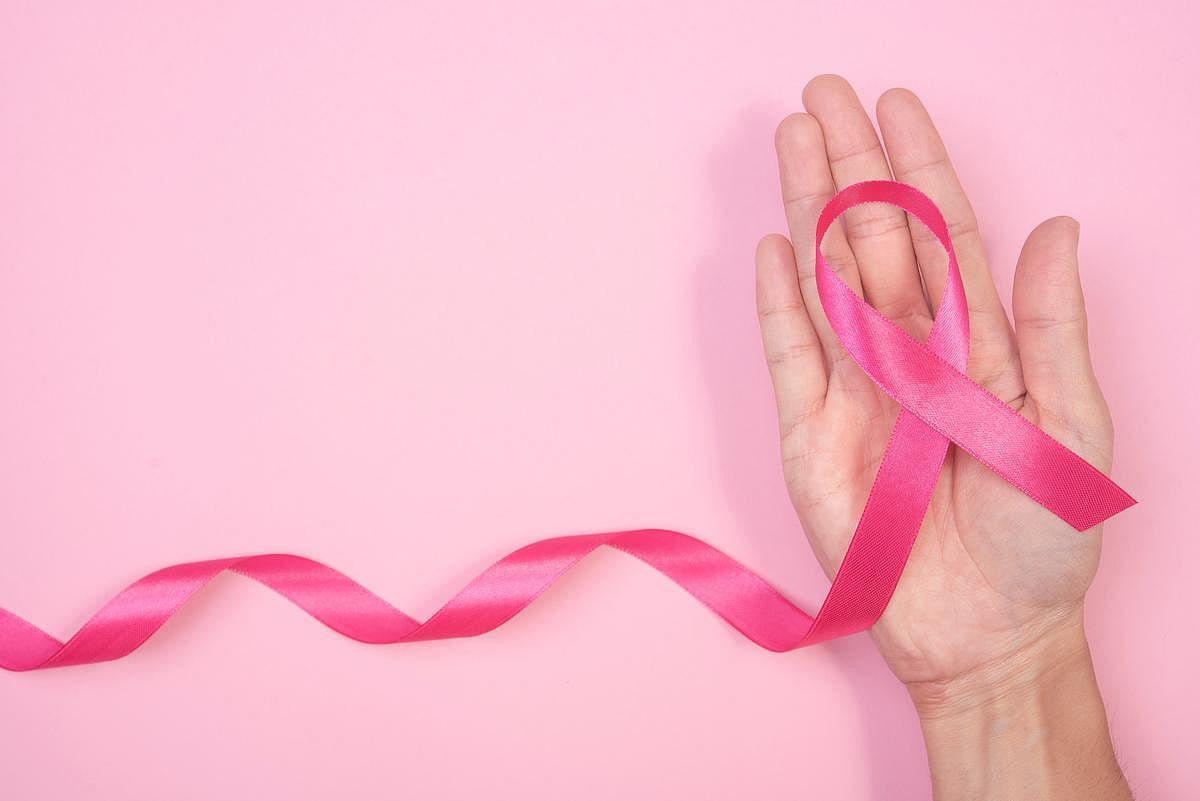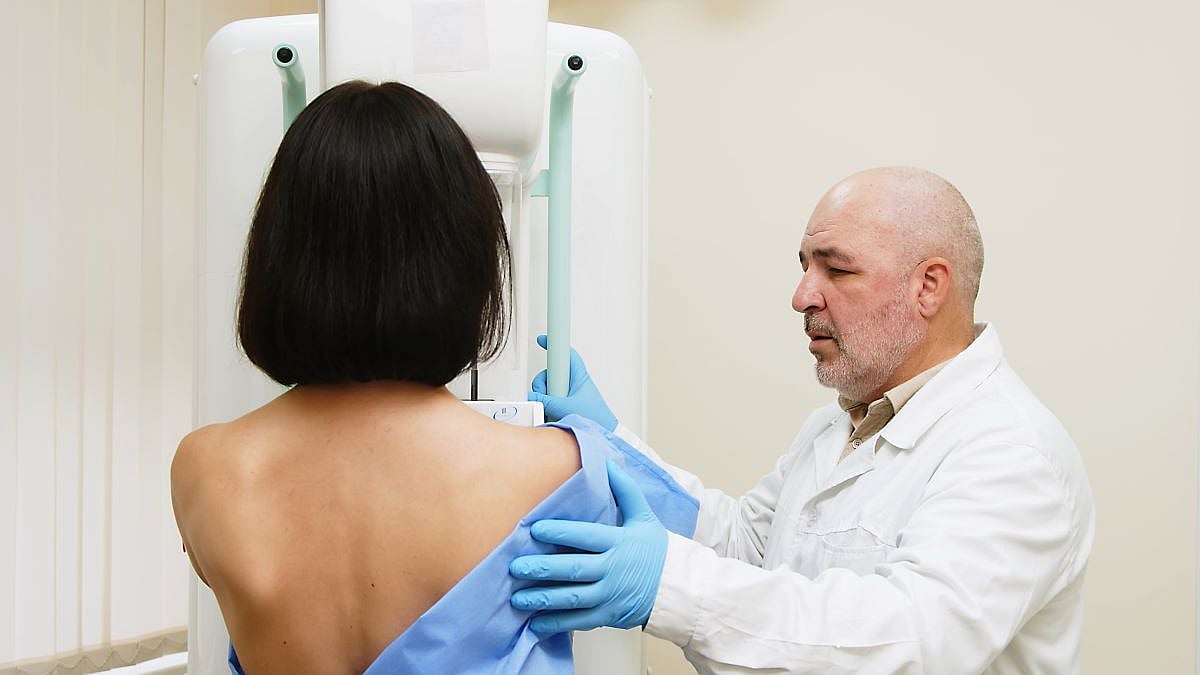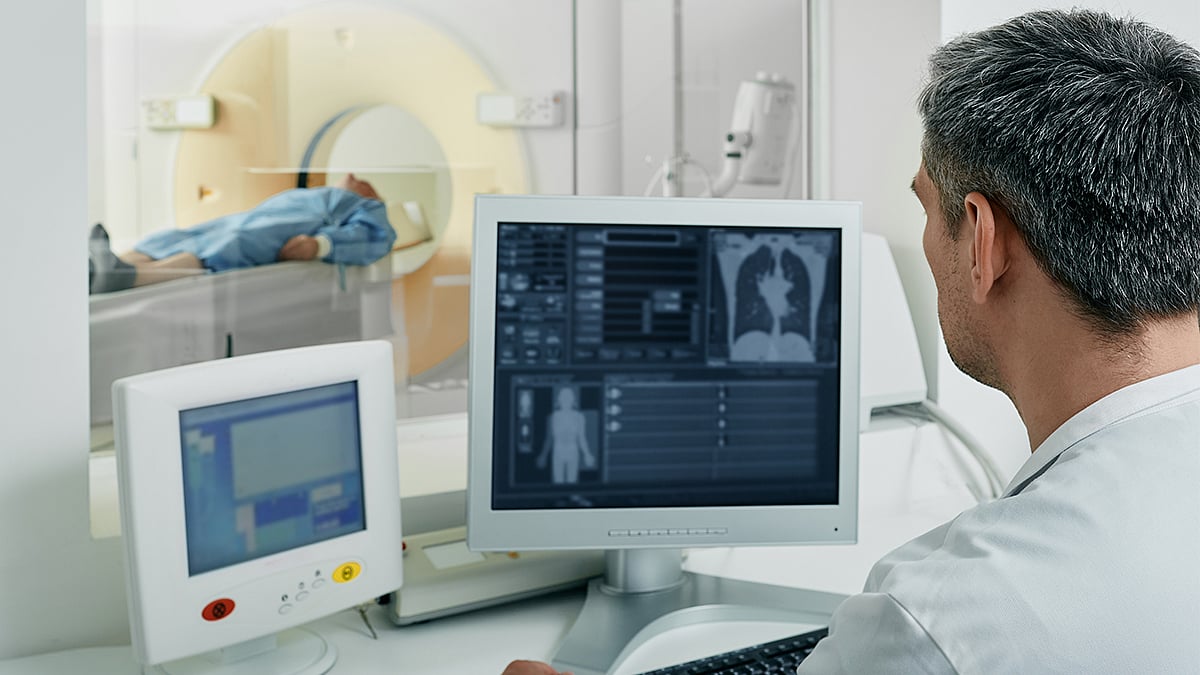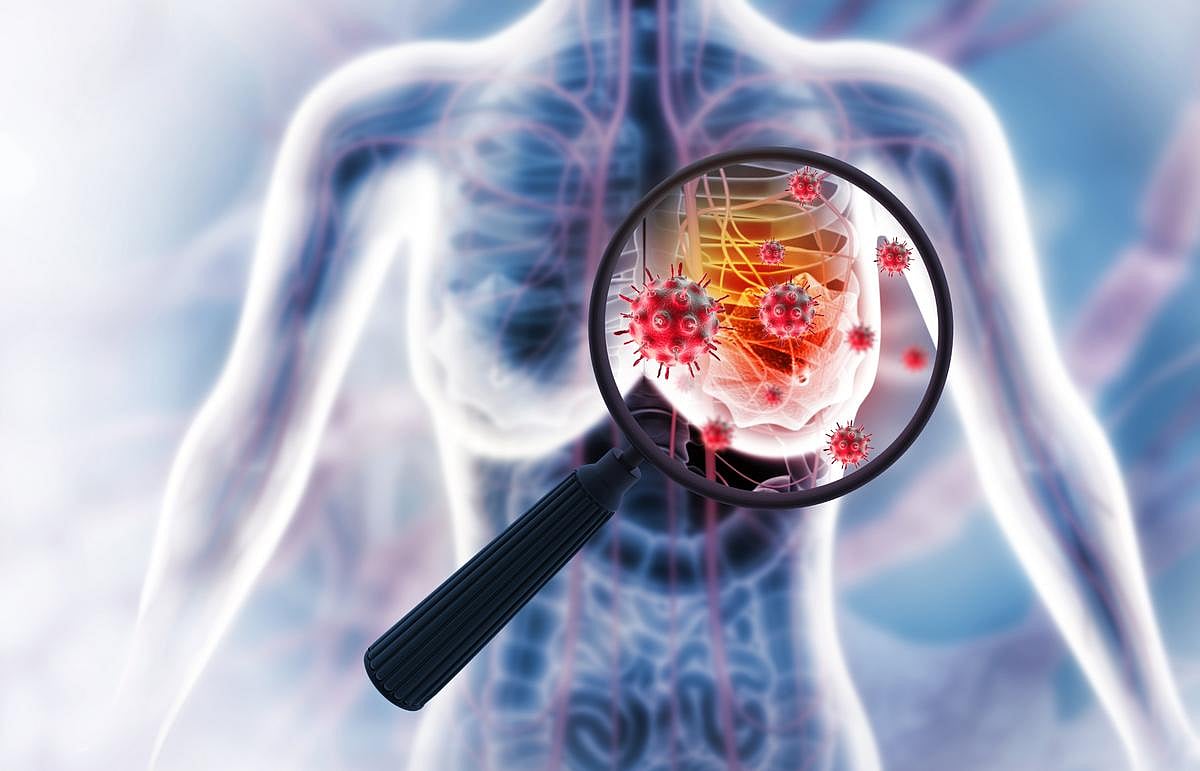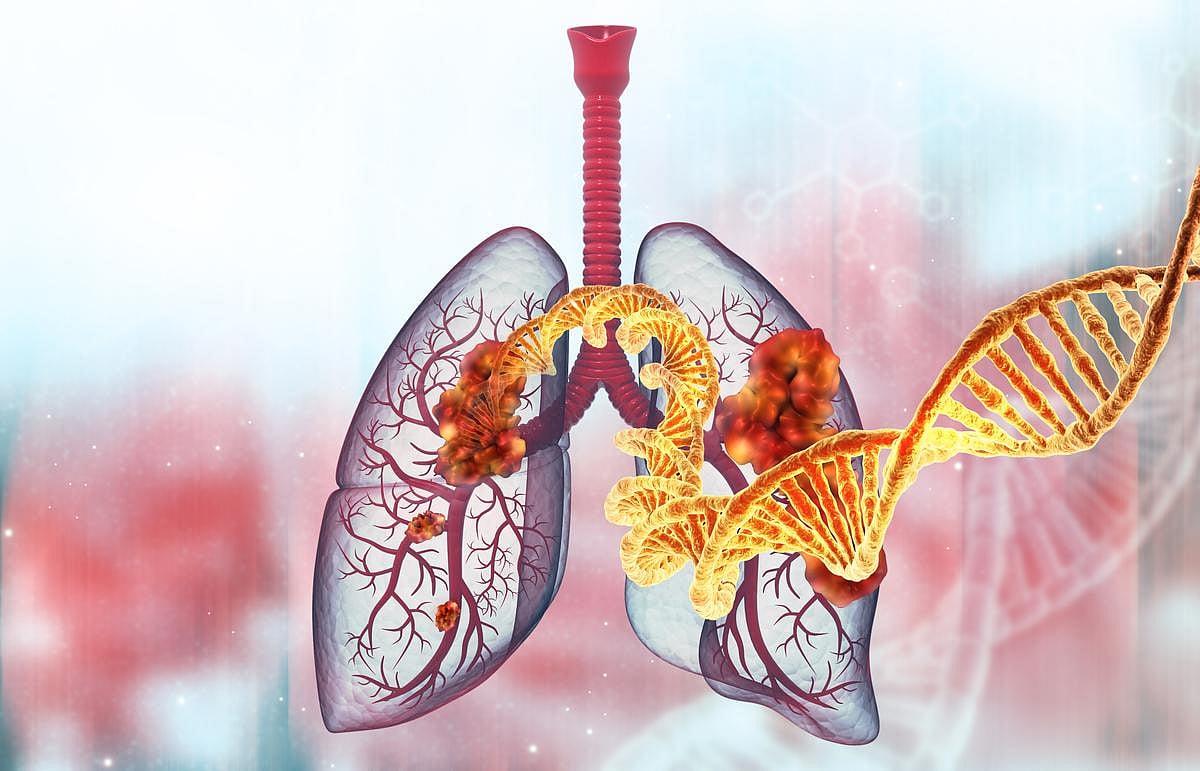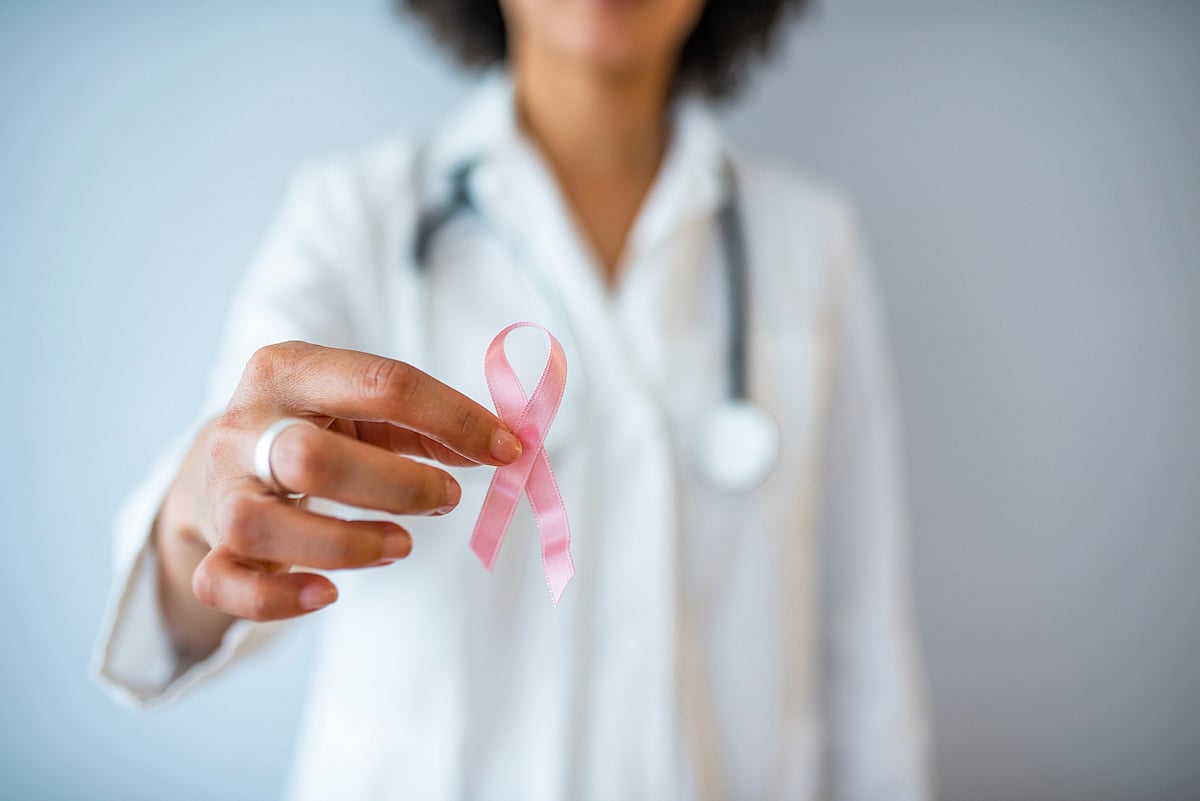Manténgase sano!
Resultados de su búsqueda "Cancer: Breast".
Videos de salud - 16
Resultados de noticias de salud - 267
Taking one additional pill could buy more than an extra year of precious time for people with advanced breast cancer, a new clinical trial showed.
Adding the targeted drug palbociclib (Ibrance) to existing therapies added 15 months ...
- Dennis Thompson HealthDay Reporter
- |
- February 4, 2026
- |
- Página completa
Artificial intelligence (AI) can help reduce the number of breast cancers found between mammogram screenings, clinical trial results show.
There was a 12% reduction in cancer diagnoses in the years following AI-supported breast cancer screening — a ke...
- Dennis Thompson HealthDay Reporter
- |
- January 30, 2026
- |
- Página completa
A drug that mimics the female hormone progesterone might help women fight hormone-fueled breast cancer.
Women with breast cancer had slower tumor growth if they took megestrol — a synthetic version of progesterone — alongside standard anti...
- Dennis Thompson HealthDay Reporter
- |
- January 6, 2026
- |
- Página completa
Tailoring breast cancer screening to a woman’s individual cancer risk might work better than annual mammograms, a new study says.
Women had breast cancers caught at an earlier, more treatable stage when assigned to risk-based screening, compared to th...
- Dennis Thompson HealthDay Reporter
- |
- December 16, 2025
- |
- Página completa
American women are notified if a mammogram reveals they have dense breasts, which can hamper the accuracy of breast cancer screening.
But this knowledge might be more trouble than it’s worth, a new study argues.
The news can spark fear and unce...
- Dennis Thompson HealthDay Reporter
- |
- December 4, 2025
- |
- Página completa
As many as 1 in 4 breast cancers occur in women younger than 50, a new study has found.
Among seven outpatient clinics in the New York region, 20% to 24% of breast cancers were found in women 18 to 49, according to results presented Monday at the Radiologic...
- Dennis Thompson HealthDay Reporter
- |
- December 2, 2025
- |
- Página completa
Plasma infusions may help breast cancer survivors avoid genital and urinary symptoms while on hormone blockers, a recent study says.
As many as 70% of breast cancer survivors suffer from vaginal dryness, itching, burning, frequent UTI and pain during sex while taking estrogen-blocking...
- Dennis Thompson HealthDay Reporter
- |
- November 20, 2025
- |
- Página completa
Self-hypnosis might help some women in menopause find relief from hot flashes.
Hot flash frequency and intensity decreased by more than 50% among women who listened to a daily audio hypnosis session, researchers reported Nov. 11 in
Exercise can help women with advanced breast cancer better withstand both cancer treatments and the ravages of the disease, a new clinical trial shows.
A nine-month program of supervised aerobic and resistant exercise improved muscle mass and strength among...
- Dennis Thompson HealthDay Reporter
- |
- November 7, 2025
- |
- Página completa
Women diagnosed with advanced breast cancer can now expect to live an extra six or seven months compared to about a decade ago, researchers report.
This increase in survival time coincides with the development of more effective treatments for advanced breas...
- Dennis Thompson HealthDay Reporter
- |
- November 7, 2025
- |
- Página completa
A new study suggests that many women with early-stage breast cancer may not need radiation after a mastectomy, thanks to advances in modern cancer treatment.
The international clinical trial followed more than 1,600 women who had early-stage breast cancer. They were consi...
- I. Edwards HealthDay Reporter
- |
- November 6, 2025
- |
- Página completa
WEDNESDAY, Oct. 8, 2025 (HealthDay news) — A rare but dangerous form of breast cancer is on the rise in the United States, a new report says.
Lobular breast cancer rates are rising three times as fast as all other breast cancers combined, 2.8% per year versus 0.8% per year, rese...
- Dennis Thompson HealthDay Reporter
- |
- October 8, 2025
- |
- Página completa
Fighting cancer can leave patients tired to their bones and researchers now think they might know why.
Inflammation was linked to fatigue among nearly 200 women with early-stage breast cancer during and after treatment with radiation or chemotherapy, researchers reported Oct. 6 in the journal
- Dennis Thompson HealthDay Reporter
- |
- October 7, 2025
- |
- Página completa
A genetic risk score can help predict which women will develop invasive breast cancer after abnormal cells have been found in their breast tissue, researchers said.
Women who scored high on the genetic blood test were twice as likely to develop breast cancer after doctors found abnorm...
- Dennis Thompson HealthDay Reporter
- |
- October 2, 2025
- |
- Página completa
Though most guidelines recommend mammograms up to age 74, new research suggests they can be valuable for women in their 80s, detecting breast cancer earlier and increasing chances of survival.
The research — published in the
Women with dense breasts could benefit from an advanced cancer screening procedure called molecular breast imaging (MBI), a new study says.
The procedure more than doubled the detection of advanced breast cancers when combined with 3D mammography, researchers reported Sept. 23 in the ...
- Dennis Thompson HealthDay Reporter
- |
- September 24, 2025
- |
- Página completa
Women who survive an early breast cancer can breathe easy, a recent study says.
Their risk of developing a second cancer is low, about 2% to 3% greater than that of women in the general population, researchers reported in T...
- Dennis Thompson HealthDay Reporter
- |
- September 16, 2025
- |
- Página completa
In a small new study, a handheld saliva-sampling device successfully detected breast cancer 100% of the time, researchers said.
The study only involved 29 saliva samples, and more research is needed.
However, the results remain “very exciting because this device could improve access to breast cancer screening and significantly reduce health care costs,” said ...
- HealthDay Reporter
- Ernie Mundell
- |
- August 4, 2025
- |
- Página completa
LaShae Rolle, 27, is a competitive powerlifter capable of squatting 441 pounds, benching 292 pounds and deadlifting 497 pounds.
Last year, breast cancer tried to derail Rolle's dreams of going up against the best of the best.
<...- HealthDay Reporter
- Dennis Thompson
- |
- July 25, 2025
- |
- Página completa
Older women carrying excess weight have a higher risk of a life-threatening double-whammy, a new study says.
Women past menopause with a higher body mass index (BMI) were more likely to develop breast cancer if they had heart disease, researchers reported July 7 in the journal
- HealthDay Reporter
- Dennis Thompson
- |
- July 8, 2025
- |
- Página completa
Some women have expressed concerns about the risk of breast cancer associated with using hormone therapy to treat symptoms of menopause like hot flashes and night sweats, and now, new research suggests that one type of hormone therapy might increase your risk if you're younger tha...
- HealthDay Reporter
- Dennis Thompson
- |
- July 7, 2025
- |
- Página completa
Ananda Lewis, a former MTV host and TV personality, is dead at 52.
Her friend Lakshmi Emory shared the news in a June 11 Facebook post. “She’s free, and in His heavenly arms,” Emory wrot...
- HealthDay Reporter
- I. Edwards
- |
- June 13, 2025
- |
- Página completa
More young women in the United States are being diagnosed with breast cancer and several celebrities have helped raise awareness by sharing their stories.
Singer Jessie J, 37, said last week that she has early-stage b...
- HealthDay Reporter
- I. Edwards
- |
- June 9, 2025
- |
- Página completa
Starting breast cancer screening in women’s early 40s will save more lives, a new study argues.
Nearly 3 in 4 women (73%) in their 40s find out they have breast cancer only after they’ve developed symptoms, researchers reported May 30 in the journal
Thanks to artificial intelligence (AI), more women might soon benefit from targeted breast cancer treatment, a new study says.
AI can help identify women who might be helped by cancer therapies that target HER2, a protein that spurs on the growth of tumor cells, according to results...
- HealthDay Reporter
- Dennis Thompson
- |
- May 28, 2025
- |
- Página completa
Louise Duffield, 60, was relieved to receive a normal mammogram result in 2023, but agreed to undergo an additional MRI scan recommended as part of a clinical trial.
Her mammogram showed she had very dense breasts, which can sometimes prevent detection of breas...
- HealthDay Reporter
- Dennis Thompson
- |
- May 22, 2025
- |
- Página completa
Artificial intelligence (AI) can help prevent breast cancers that develop between routine mammograms, by catching ones that trained radiologists would overlook, a new study says.
Incorporating AI into mammography could help reduce the number of interval bre...
- HealthDay Reporter
- Dennis Thompson
- |
- May 14, 2025
- |
- Página completa
Significant weight gain paired with delayed or foregone motherhood nearly triples a young woman’s risk of later breast cancer, a new study says.
Women were 2.7 times more likely to develop breast cancer if they:
Had a more than 30% increase in weight a...
- HealthDay Reporter
- Dennis Thompson
- |
- May 14, 2025
- |
- Página completa
More young adults in the U.S. are being diagnosed with cancer, and researchers are trying to figure out why.
A new government report shows that rates of several types of cancer are going up in people under age 50, especially among women.
The
Removal of the ovaries and fallopian tubes appears to dramatically reduce the risk of death among breast cancer survivors who are genetically prone to cancer, a new study says.
Breast cancer survivors carrying BRCA1 and BRCA2 gene variants had a 48% overall lower risk of death after u...
- HealthDay Reporter
- Dennis Thompson
- |
- May 9, 2025
- |
- Página completa
TUESDAY, May 6, 2025 (HealthDay news) -- It’s natural to feel a wave of anxiety following a diagnosis of breast cancer.
But women shouldn’t let worries about delaying treatment deter them from seeking a second opinion on their diagnosis and trea...
- HealthDay Reporter
- Dennis Thompson
- |
- May 6, 2025
- |
- Página completa
Breast cancer patients fare better if they continue to exercise during their treatment, and a new program can help women get the activity they need to boost their odds, researchers say.
The Comprehensive Oncology Rehabilitation and Exercise (CORE) program assesses women’s physic...
- HealthDay Reporter
- Dennis Thompson
- |
- April 28, 2025
- |
- Página completa
Women are OK with having an AI program help doctors review mammograms performed for breast cancer screening, a new study says.
About 7 out of 10 women (71%) said they’re fine with an AI program providing backup for a radiologist’s review of their breast X-ray, researchers report in th...
- HealthDay Reporter
- Dennis Thompson
- |
- April 22, 2025
- |
- Página completa
Breast-conserving therapy for breast cancer might not conserve as much as previously thought, a new study suggests.
Women’s breasts can shrink considerably after they’ve undergone radiation therapy and lumpectomy for their early-stage breast cancer, researcher...
- HealthDay Reporter
- Dennis Thompson
- |
- March 31, 2025
- |
- Página completa
Surgery might not be needed to treat as many as 60% of early-stage breast cancers, a new study says.
Breast cancers that have been completely wiped out by chemotherapy and radiation treatment are not likely to come back, according to a small-scale clinical ...
- HealthDay Reporter
- Dennis Thompson
- |
- March 31, 2025
- |
- Página completa
Opting for a lumpectomy during breast cancer treatment can protect a woman’s future sex life, a new study suggests.
Breast-conserving therapy (BCT) is associated with better sexual well-being, compared to mastectomy followed by breast reconstruction, researchers found.
In fact, sexual well-being improved among lumpectomy patients within six months of their surgery, according t...
- HealthDay Reporter
- Dennis Thompson
- |
- March 5, 2025
- |
- Página completa
Breast cancer survivors treated with chemotherapy tend to suffer a longer-lasting decline in their physical health, compared to women who receive hormone therapy or other cancer treatments.
Chemotherapy patients reported a physical decline that extended more than two years after their di...
- HealthDay Reporter
- Dennis Thompson
- |
- March 4, 2025
- |
- Página completa
Where a young American woman lives could play a role in her risk for breast cancer, a new study suggests.
In fact, the breast cancer risk associated with a young woman’s locale is comparable to that from other known factors, such as genetics, research...
- HealthDay Reporter
- Dennis Thompson
- |
- February 26, 2025
- |
- Página completa
Breast cancer deaths are expected to increase during the next quarter-century, largely impacting the world’s poorest nations, a new international study says.
About 1.1 million breast cancer-related deaths are projected to occur in 2050 worldwide, an i...
- HealthDay Reporter
- Dennis Thompson
- |
- February 25, 2025
- |
- Página completa
Women of color are less likely to receive prompt follow-up testing after abnormal mammogram results, a new study has found.
Minority women are less likely than white women to receive a same-day advanced imaging or biopsy after an abnormal mammogram, even though they have similar access to those s...
- HealthDay Reporter
- Dennis Thompson
- |
- February 19, 2025
- |
- Página completa
Cancer screenings can save lives by detecting cancer early, when treatment is most effective.
With an estimated 2 million new cancer cases expected in 2025, regular screenings are more important than ever, according to the American Cancer Society.
February is National Cancer Prevention Month, which make...
- HealthDay Reporter
- India Edwards
- |
- February 15, 2025
- |
- Página completa
A survey of hundreds of breast cancer survivors finds that tumor recurrence fear can wreak havoc on a woman's emotions.
“Cancer is all around us. Everything is a trigger," one survey participant said. "Anniversaries, other family/friends’ diagno...
- HealthDay Reporter
- Ernie Mundell
- |
- February 10, 2025
- |
- Página completa
Giving patients with a common form of breast cancer an immunotherapy drug before surgery appears to boost outcomes, a new phase 3 trial finds.
The study involved patients with estrogen receptor positive (ER+)/human epidermal growth factor receptor 2-negative (HER2-) breast cancers. That's a tumor subtype that comprises 70% of all breast cancers, the study's authors noted. These tumors als...
- HealthDay Reporter
- |
- February 7, 2025
- |
- Página completa
Exercising now can increase your chances of successfully fighting cancer in the future.
Even low levels of exercise provided protection against cancer, a new study published Jan. 7 in the British Journal o...
- HealthDay Reporter
- Dennis Thompson
- |
- January 9, 2025
- |
- Página completa
Heart disease and cancer might seem completely unrelated, but these two top causes of death sometimes act in concert.
Women with heart disease appear to have a greater risk of aggressive breast cancer, according to a new study published Jan. 2 in
The lungs are a tempting place for cancer cells -- so much so that more than half of people with advanced cancer elsewhere in their bodies wind up with lung tumors.
Researchers now think they know why.
Elevated levels of an amino acid called aspartate appear to allow cancer cells to grow more easily inside the lungs, researchers reported in a study published Jan. 1 in the journal
- HealthDay Reporter
- Dennis Thompson
- |
- January 3, 2025
- |
- Página completa
Very early-stage breast cancers are notoriously tough to spot via mammograms, but new technology might make detection easier.
According to a new study published recently in the
Radiation therapy for breast cancer comes with a host of side effects, including conditions as serious as heart problems and pneumonia.
Now, a new study says some breast cancer patients can safely skip radiation therapy without risking their cancer coming back.
Women who didn&rs...
- HealthDay Reporter
- Dennis Thompson
- |
- December 18, 2024
- |
- Página completa
The established hormone therapy drug tamoxifen can significantly decrease the risk of cancer recurring in women with an early, low-risk form of breast cancer, a new study says.
Women who took tamoxifen after undergoing a lumpectomy to remove
An experimental hormone therapy pill has shown promise in extending the lives of women with tough-to-treat advanced breast cancer, a new clinical trial shows.
The drug,


















